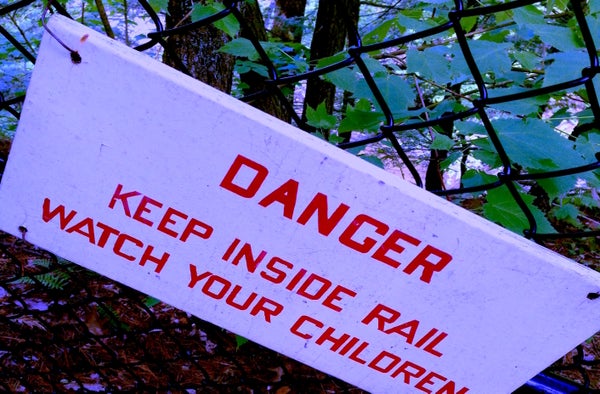This article was published in Scientific American’s former blog network and reflects the views of the author, not necessarily those of Scientific American
The past few years have seen an extraordinary flurry of activity in the development of machine-based analysis techniques all broadly labeled as artificial intelligence. Cool-sounding terms abound: there are neural networks, multilinear subspace learning, random forests, deep Boltzmann machines, deep Q-networks, and so on and so on.
Tools like these are not just opening up new vistas of computation and automation (from big data analysis to self-driving cars, drones, and other robotic entities), they're also provoking renewed debate over their promises and perils. Technological leaps can alleviate our chores, but they can also remove our jobs. And if AI gets stronger and stronger (and more general in intelligence, like us) there are valid concerns that material control of our world will be neatly removed from our grasp one day soon.
But I'd like to be optimistic. There is something positive that even our rudimentary AI is already doing for us. It's helping us think differently, to see the world through entirely new eyes. In doing so it could help us probe ever deeper into the workings of the universe.
On supporting science journalism
If you're enjoying this article, consider supporting our award-winning journalism by subscribing. By purchasing a subscription you are helping to ensure the future of impactful stories about the discoveries and ideas shaping our world today.
A simple example is what's been happening with Google Deepmind's AlphaGo system. Not only has this deep-learning system been besting the top human players, it has revealed new things about this ancient game. The world's highest ranked biological player Ke Jie stated that "After humanity spent thousands of years improving our tactics, computers tell us that humans are completely wrong... I would go as far as to say not a single human has touched the edge of the truth of Go."
Hyperbole aside, this is a powerful statement about the utility of AI in finding new ways to approach problems. The student becomes the teacher.
None of this is lost on people working at the forefront of this kind of AI development. But there are plenty of challenges along the way. I would guess that a primary hurdle is going to be simply identifying the areas where we might need an AI to think differently on our behalf. Right now these machines are working in quite specific arenas where there are rule sets and opportunities for endless trial and error, or where there are enormous amounts of data to mine for correlations and causation probabilities.
Science definitely has puzzles that might fit the bill. Should we try to unleash AIs on mountains of particle accelerator data to find out the 'rules' without preconceptions about physics? Or perhaps use a database like the entire archive of stellar lightcurves from NASA's Kepler mission and let an AI tell us what's meaningful or not about stars and planets? Not surprisingly, AI-like tools are indeed already being applied in these places.
But I think that the ultimate goal would be to construct a machine system that can experience the world without any of the ties and preconceptions of its human inventors. In other words, we want a machine that represents the thought experiment of an alien species discovering the universe on its own. Equally, it would be incredible to run a 'do over' of our own intellectual history, rewind the tape of history and play it forward differently to find out what we missed.
People sometimes ask whether we know what we don't know. In science I think the answer to that is that we do and we don't. For example, it is possible that a field like cosmology is permanently hindered because of the specific cosmic time at which we exist and from where we make our observations and measurements. Had we been here in the distant past we might have missed the signs of dark energy accelerating the cosmic expansion. In the far future we might not be able to unpack the clues to a Big Bang from data that tracks primordial nucleosynthesis, since early element abundances could be long obliterated by generations of stellar nuclear fusion.
Another instance is the question of the origins of life on Earth. We still don't have a complete picture of how inanimate matter gives rise to animate matter. Part of the challenge is that we only see and experience life after four billion years of evolution has taken place. Even the base molecular components --- complicated assemblies like the ribosome --- are themselves evolved objects, the products of selection processes. Fossil and geological records are still too blurry at these levels of scale and detail to solve the puzzle with any ease.
Today we might be unwittingly diverted from a deeper understanding of the cosmos by similarly confounding circumstances, and blinded by the peculiarities of our terrestrial intuition and instincts when it comes to the nature of life itself. Maybe the right AI could let us peek around those fences.
Clearly we should be cautious, but the opportunity to circumvent the intellectual hand dealt to us by chance and evolution is something we should consider very seriously.
In that case I, for one, welcome our scientifically minded AI overlords...
